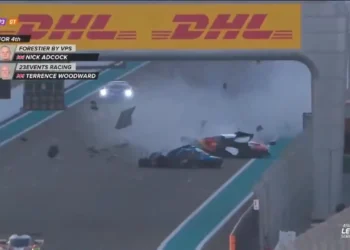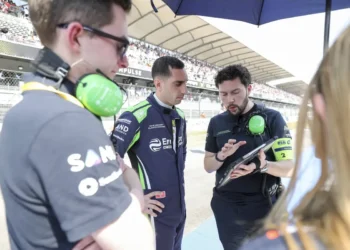During the 2008 Formula 1 season, a major controversy known as the ‘Crashgate’ scandal occurred, resulting in Felipe Massa losing the championship to Lewis Hamilton by a small margin. This controversial incident sparked debates about the legitimacy of the championship results. Bernie Ecclestone, former head of Formula 1, recently shared his perspective on the scandal. He revealed that he was aware of the details surrounding the incident at the Singapore Grand Prix, where Nelson Piquet Jr, of Renault, was instructed to crash on purpose to benefit Fernando Alonso’s race strategy. This strategic move had a profound impact on the championship result.
Ecclestone stated that, according to the rules, the race should have been annulled, which would have changed the championship result in favor of Massa. Initially, Ecclestone retracted his statements, claiming a lack of memory regarding the interview. However, his initial comments led Massa to consider taking legal action against Ecclestone, Formula 1, and the FIA, as he believes he was unfairly denied the 2008 World Championship.
Determined to seek justice, Massa filed a lawsuit in the High Court of the United Kingdom, seeking recognition as the 2008 World Champion and a minimum of $82 million in damages. Massa emphasized his commitment to pursuing legal avenues to correct what he perceives as a historical injustice in the sport. Surprisingly, Ecclestone, despite being mentioned in the lawsuit, supports Massa’s decision to sue him. He believes that allowing an English judge to rule on the case is the appropriate course of action to establish what is fair and right.
La complexité de la situation est soulignée par la position d’Ecclestone, car il place sa confiance dans le processus légal pour fournir une résolution qui pourrait offrir une certaine forme de réparation à Massa. La communauté de la F1 surveille de près l’évolution du processus légal, car l’organe de régulation du sport et la F1 elle-même n’ont pas encore pris position sur le processus en cours. Ce cas a le potentiel de revisiter l’un des moments les plus controversés de la F1 et pourrait établir un précédent pour la manière dont le sport aborde les plaintes de ses participants à l’avenir.










